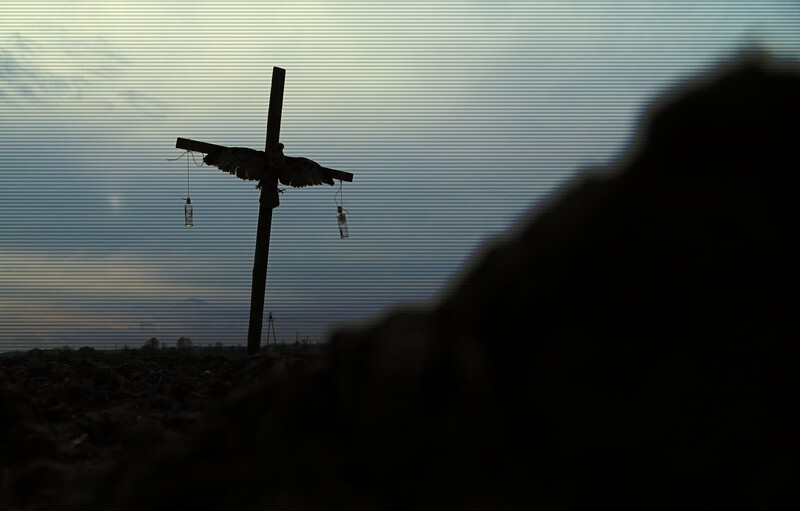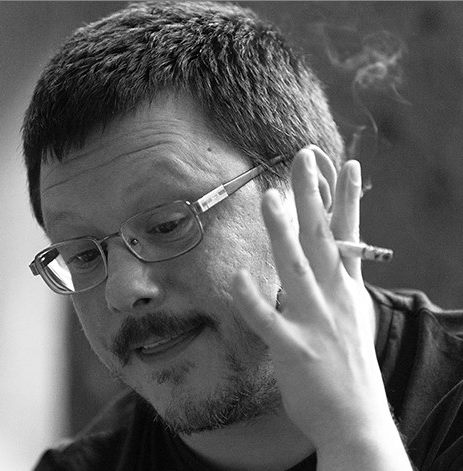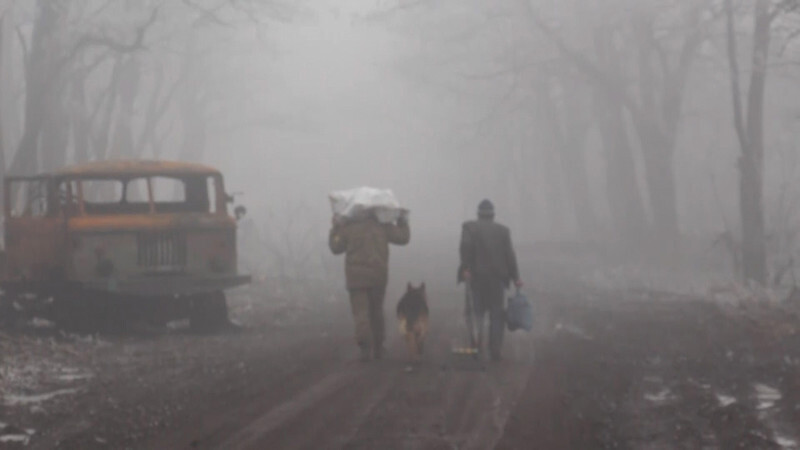Opera About Poland
Polish filmmaker Piotr Stasik's mid-length documentary A Diary of a Journey, nominated for the Silver Eye Award at IDFF Ji.hlava in 2013, was an intimate travelogue about a mentor and his student. His latest, Opera About Poland, combines the director's own travel recordings and other writings and sources into a collage that represents the state of the nation.
Opera About Poland is not an opera in the classical sense, but it is definitely operatic in its scope and ambition. There is a stage with performers and an orchestra, and this is the tissue that connects the film’s disparate parts. The stage is dimly lit. The orchestra plays a dissonant composition, mostly on strings and horns. One of the actors rides a training bicycle and shouts through a bullhorn.
He declaims excerpts from Stasik's own writings, but also those by one of the country's most acclaimed authors, Andrzej Stasiuk. These are combined with various footage, including a very short archive snippet of Warsaw's destruction in the Second World War, staged photographs of everyday people, aerial shots of foggy Polish countryside set to a retelling of a childhood dream, a nocturnal shot of an empty supermarket parking lot, religious rituals, football fans, military exercises, a family lunch…
As the music gets louder and acquires a simple rhythm, the images and the voice over accelerate. There are various voices that succeed each other, reading personal classifieds and ads from people who offer to buy or sell things, anonymous blog posts and comments from social networks. Each provides a creative insight into the spirit, opinions and beliefs of the Polish people.
Stasik seems especially focused on the people's relation to and dependence upon religion and its various expressions, especially Polish version of Catholicism, frequently mixed with superstitions. From a press release by the Parliament about a mass said for rainfall, through the list of relics belonging to St. John Paul and call-ins from listeners of the Catholic Radio Maria, the director clearly displays both the atmosphere around the Church in Poland and his view thereof.
The latter is clear from his pairing of images and quotes. A simple sentence from a believer who thinks sex is evil has a different meaning when it is read over footage of football fans lighting torches at a match. In this context, even just a brief shot of a youngster wearing a hoodie reading "PSYCHO" and carrying an empty beer bottle has a more powerful significance. It tells of the normalization, rather than extremism, of the country’s rising right wing.
These are just some of the elements that Stasik expertly puts together in only 40 minutes. It is a visually arresting piece, in which the opera part dictates the dynamics of the film. As it nears its crescendo, we are reminded of the opening, highly symbolic shot: a crucified eagle.
However critical of his country Stasik is, it is clear that he understands it deeply. Pointing out your nation's problems and fallacies is a duty, as well as the highest patriotic expression; one that self-proclaimed patriots are unable to comprehend. But every nation should have an opera like this.
|
|
Vladan PetkovicVladan Petkovic is a journalist, film critic, festival programmer, translator and educator. He is the correspondent for the territories of former Yugoslavia for Screen International and Cineuropa, and regularly writes news, reviews, interviews, and market analyses for various magazines and websites. He is a programmer for the Cinema City Film Festival in Novi Sad (Serbia), Skopje Film Festival (Macedonia), and Mostar Film Festival (Bosnia and Herzegovina), and contributes as guest programmer and advisor for numerous international film festivals around Europe. |




